
16 minute read
Greenfield facility plant will use fungi fermentation to produce meat alternatives
Greenfield facility:
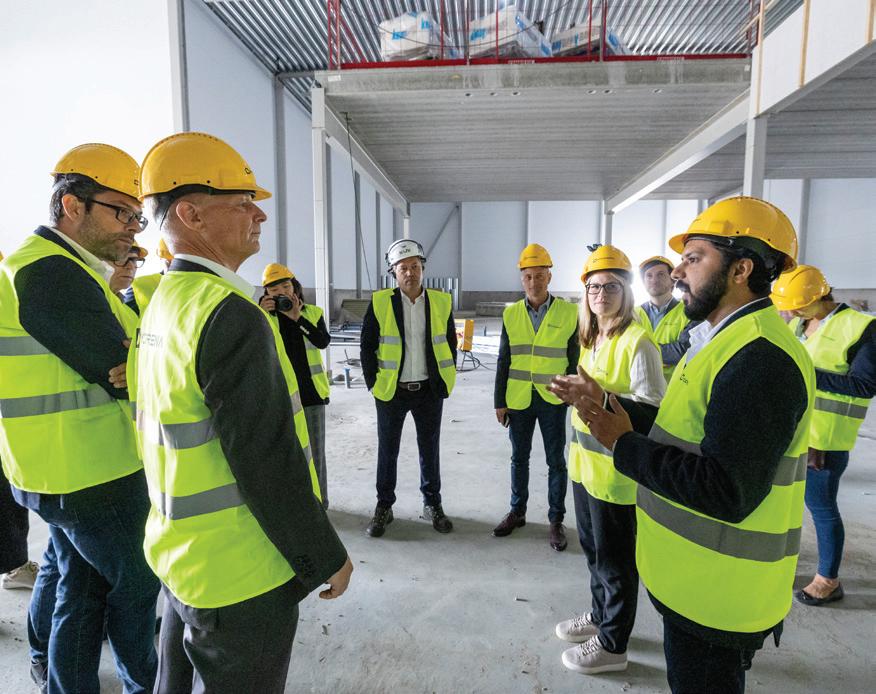
Tetra Pak is teaming up with Mycorena to build a greenfield facility for the production of new meat alternatives. Located in Falkenberg, Sweden, the plant will use fungi fermentation to produce products with lower GHG emissions, land and water use compared to the production of traditional protein sources.
The factory’s first phase will include mince-based products that will serve as ingredients for making alternative meat products. Mycorena also has plans to expand its production capacity and extend its geographical reach by opening new factories across Europe and Asia in the near future.
Charles Brand, Executive Vice President for Processing Solutions & Equipment, Tetra Pak, commented: “We are very excited to be working with Mycorena on this project for the innovation and advancement of the food supply chain that aligns with all three areas of our purpose — protecting food, people and the planet. The process of fungi fermentation utilises microorganisms that are bioprocessing powerhouses which can create high-quality, nutritious proteins. They may be small, but they have the potential to make a big impact on building a more robust and diverse food system, cementing a better future for all.”
Dr Ramkumar Nair, Founder and CEO, Mycorena, added: “Fungi fermentation is the future of the food industry and we are proud to be revolutionising this space. This new fermentation facility is a state-of-the-art production plant, which provides us with a technology blueprint that will be further expanded in Sweden and replicated globally. For such an ambitious journey, Tetra Pak is the ideal partner for us, not only because of their cutting-edge expertise in processing, but we also have a shared ambition to develop a more sustainable food supply chain.”
Fungi fermentation is one aspect of food fermentation, which takes natural, age-old processes and uses microbiology to turn microorganisms into tiny production centres that make proteinrich products including alternatives to meat, seafood and dairy. The process also serves to improve texture and taste of traditional plant-based food products.Charles Brand, EVP at Tetra Pak and Dr Ramkumar Nair, Founder and CEO, Mycorena.
Mycorena greenfield production facility

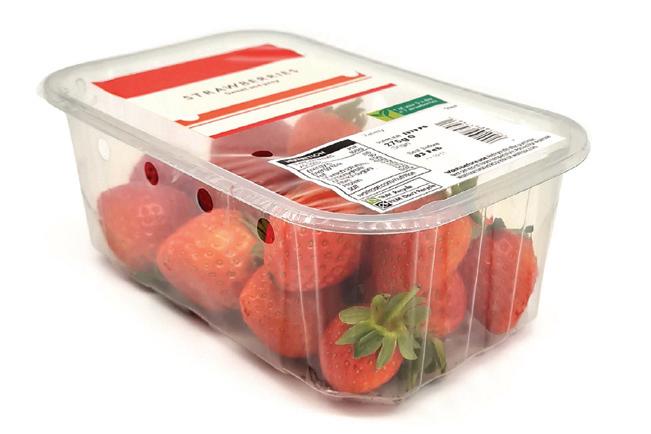
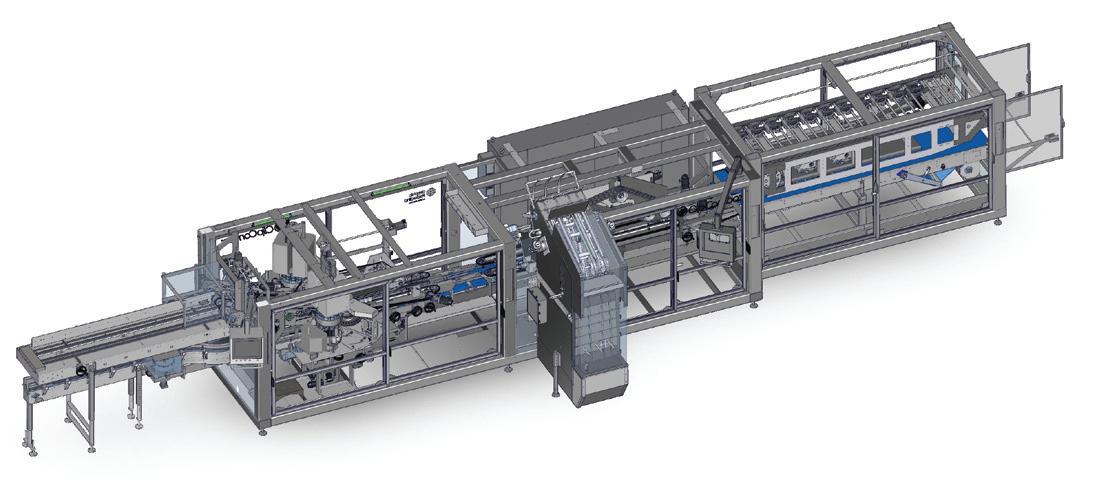
Beverage packaging machinery system
Graphic Packaging International is set to unveil its ClipCombo packaging machinery system at drinktec 2022, being held in Munich, Germany, from 12–16 September. The flexible system combines multiple packaging solutions over a modular machinery system, suitable for beverage manufacturers using fibre-based packaging solutions. It provides users with the ability to run multiple fibre-based multipack styles across the same machine. Machine options are available for either cans or PET bottles, offering multiple combinations, including: KeelClip plus EnviroClip fibre-based clips for can multipacks; GripClip plus EnviroClip fibre-based clips for can multipacks; and Cap-It plus EnviroClip fibre-based clips for PET bottle multipacks.
Benefits include high speeds of up to 400 packs/min (dependent on application) and rapid changeovers.
The new approach to machine system development will allow Graphic Packaging to add to its clip-style packaging range and further help users eliminate plastic rings and shrink wrap across their product range.
Graphic Packaging International Australia Pty Ltd
www.graphicpkg.com
Aseptic packaging system
The Sidel Aseptic Predis X4 is an integrated blow-fillcap solution that incorporates consolidated Predis dry preform sterilisation, making it suitable for sensitive beverages in PET bottles. The flexible, easy-to-use system builds on Sidel’s aseptic technology and introduces further innovation in design and digitalisation.
An evolution of its existing range, the Aseptic Predis X4 is developed by Sidel to help users meet the growing market for healthy and nutritious drinks with a long shelf life, such as juice, nectar, soft drinks, isotonics, teas (JNSDIT) and liquid dairy products (LDP).
The solution will be introduced at drinktec 2022 from 12–16 September 2022 in Munich, and will then go through a progressive deployment plan across applications and regions.
Sidel Oceania Pty Ltd
www.sidel.com
Compact tray sealing machine
The Proseal GT4s compact tray sealing machine is designed to maximise the use of pack room space while delivering fast speeds of up to 140 atmospheric packs/min with a seven-impression tool.
The GT4 features the company’s Pro-Motion technology to increase throughput with following motion and intelligent buffering technology that enables trays to feed continuously into the sealer without stopping. This is claimed to improve speeds by up to 30%. The GT4s also can be customised to include free flow gas flush modified atmosphere packaging (MAP) to further extend the shelf life of perishable products.
Furthermore, the machines are capable of handling modern pack formats such as the Alexir Stackpack, a craft-board punnet that provides an inline, off-the-shelf, fully printed card punnet, and the CKF Earthcycle Punnet that offers a plastic-free equivalent to a plastic punnet.
Proseal Australia
www.prosealaustralia.com
Image credit: QUT
Research centre opens to boost indoor air quality

An Australian Research Council (ARC) training centre that concentrates on improving indoor air quality and reducing spread of airborne infections has been announced.
The ARC Training Centre for Advanced Building Systems Against Airborne Infection Transmission is aiming to develop standards that would improve air in new builds.
The project, which will be hosted at QUT’s Gardens Point campus, aims to reduce transmission of diseases indoors through principles, technologies and systems that can be used in building control and management. The centre will be cooperating with the Advanced Manufacturing Growth Centre (AMGC) to translate research into useful practical solutions.
“I firmly believe the centre will be a catalyst for revolution and bring us closer to clean indoor air becoming the norm,” said QUT Distinguished Professor Lidia Morawska, who is leading the centre.
“Our work will see Australian building system manufacturing companies working alongside international companies, as forerunners in establishing the new norm.”
Last year Morawska called for the development of new standards of air quality to help deal with COVID-19, saying that food processing plants would do well to prioritise the improvement of air quality in order to reduce illness amongst workers. Meat packers were notably impacted by COVID-19 throughout the pandemic so far, with close proximity, low temperatures and poor air filtration blamed, and some adopted new technology to counteract these problems.
Infection by airborne diseases has an impact on the workplace due to time that workers have to take off, leading to millions of dollars in lost productivity each year. Using new standards and products to fight this will be a big undertaking but will reduce illness.
“Respiratory infectious diseases spread mainly by airborne transmission, which is the inhalation from the air of virus or bacteria-laden particles generated during breathing, speaking and all other human respiratory activities. Protecting building occupants from airborne infection in all shared interior spaces must be strategically controlled,” Morawska said.
“This has never previously been envisioned outside specialised sections of healthcare facilities.”
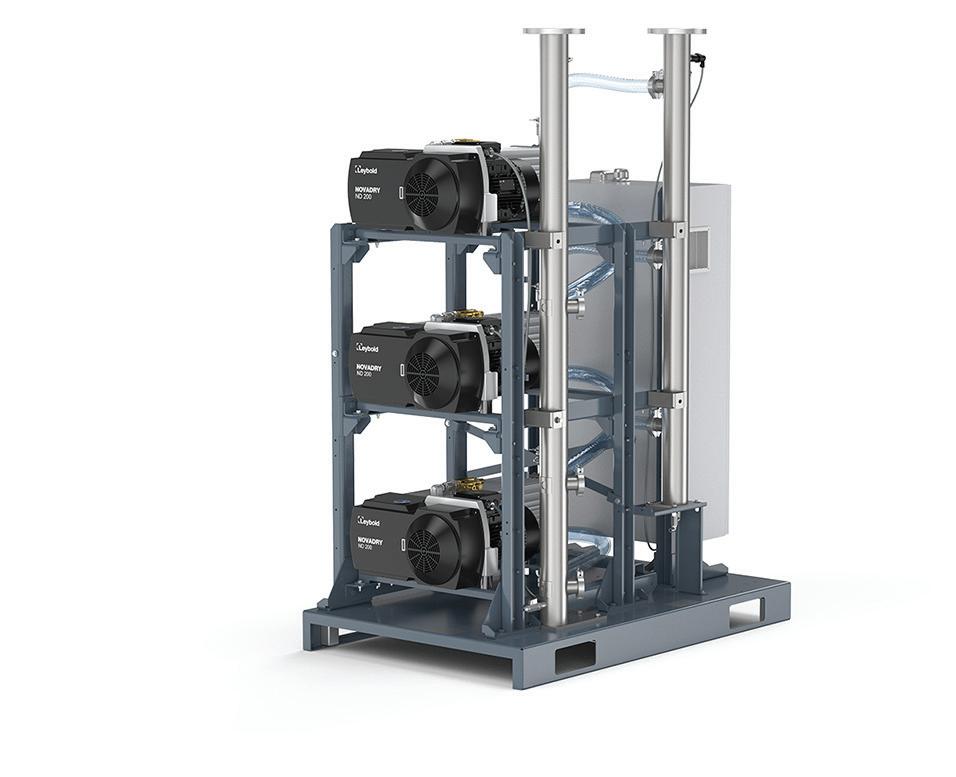
Ultrasonic flow meter
Bronkhorst has released a new model of the ES-FLOW family: the ES-1x2C. This flow meter will cover the flow range just below the existing ES-1x3I or ES-1x3C.
The market for low liquid flow range of ≤1000 kg/h or L/h measurement and control is an important section to Bronkhorst, due to its size and the expected future growth.
The ES-FLOW product series offers a good performance of ≤0.8% Rd at an economic price level. Mini CORI-FLOW offers a higher performance, but this high-performance level at ≤0.2% Rd is not always required. Both flow meter series always include the same Bronkhorst features such as onboard PID-controller, totaliser and alarm functions, and many communication buses.
The ultrasonic flow meters ES-1x2C and ES-1x3C are compact, versatile (eg, liquid independent), provided with a straight sensor tube, eg, low internal volume, easy to clean, low-pressure drop in relation to sensor diameter and equipped with advanced signal processing (eg, dosing functionality).
AMS Instrumentation & Calibration Pty Ltd
www.ams-ic.com.au
The leading supplier of high quality components and products to the food & beverage industry
Energy Chains Bearings Flexible Cables
Cable Glands Connectors Flexible Conduits
Sensors Gearheads Light Curtains
www.treotham.com.au | 1300 65 75 64 | info@treotham.com.au Australian Owned & Managed - Sydney, Melbourne, Brisbane & Perth
Central vacuum system
The Leybold NDi central vacuum system is for food and packaging applications requiring a hygienic central vacuum supply.
Easy to operate and compact, the system is based on the dry-running NOVADRY screw pump and the integrated VAControl CAB controller for smart control.
By equipping the standardised NDi pump systems with the VAControl CAB, the Leybold system helps ensure control of all processes. Continuous data recording helps achieve maximum production quality, with the encrypted pump data available regardless of location. Individual users can access the server at any time — users can choose between local, remote or cloud connectivity.
Direct control of the system is possible via various interfaces and end devices.
The intelligent software functions that Leybold has stored in the control system are user-friendly and serve the entire process planning: for example, they can be used to control the starts and stops of several pumps, the pressure control and the cloud communication via GENIUS. The maintenance and service recommendations of the vacuum system are generated by the computer depending on the operating times.
The standardised NDi vacuum systems are available fully assembled in different pumping speeds: as ND 400i with 400 m3/h pumping speed and as ND 600i version with 600 m3/h pumping speed. Other features include a strong vacuum performance up to a working pressure of 5 mbar, intelligent pressure adjustment and control of the target pressure.
Applications include: food and packaging processes (ie, packaging of red meat with modified atmosphere (MAP)); research and development; pick and place; and production of electronic components.
Atlas Copco Group
www.atlascopcogroup.com
Automatic kegging line
The Innokeg AF-C Transversal from KHS is an automatic kegging line that can wash and rack up to 500 kegs per hour.
The line does not use separate belts for infeed and discharge upstream and downstream of the actual machine. Instead it uses a centralised conveyor system that reduces the footprint of the line by transporting the keg through the middle of the paired opposite processing stations on a single conveyor belt.
The system is modular for flexible expansion. Two modules with two respective processing stations can be combined in a single block frame and the block fits into a standard overseas container. A machine can be flexibly configured with up to four blocks with two modules each. This is equivalent to 16 treatment heads that can function as a pre-, main or combined washer or filler respectively.
In configuring the overall line 12 washing stations can be combined with eight racking stations, for instance, to balance the different cycle times. Individual modules in the block can initially be left empty and simply fitted with further processing stations at a later date should the necessity arise.
The line is suitable for most market-standard returnable and non-returnable kegs and optional modules allow for the automatic adjustment to different keg heights and diameters.
It features an Innopal RK palletiser to move the kegs, as well as an on-demand turner, fitting position detector and decapper. Kegs are cleaned and soaked. The Direct Flow Control filling system helps with the filling. An inkjet is used for labelling.
KHS Pacific Pty Ltd
www.khs.com



Sugarcane prebiotic made available in supply agreement
Tismor, a contract manufacturer in the Australasian and global health and wellness sector, will be offering Kfibre as an ingredient after it signed a supply agreement with its producer, Health Food Symmetry (HFS).
Kfibre is a sugarcane-based prebiotic additive that, as HFS claims, offers various health benefits including increasing gut biome health, providing support for weight management and reducing constipation; it is also low FODMAP certified. With the agreement, Tismor’s clients will have the option of using the prebiotic in their manufactured foods.
Kevin Williams, Sales Manager of Tismor, said: “Globally there is a shortage of key ingredients that are required for premium health and wellness products, and it is common knowledge that manufacturing on a global level is suffering from supply chain issues... This new partnership with Health Food Symmetry will allow us to keep a sovereign domestic supply of a key ingredient for our manufacturing schedules.
“Furthermore, we believe Kfibre has the ability to disrupt this category, being Australian grown and manufactured, whilst being fully backed by clinical trials. We see Kfibre as a fantastic offering to our customers as an ingredient to boost the effectiveness of their products via our industry-renowned New Product Development process, run out of our Tismor Creative Centre.”
Gordon Edwards, the CEO of HFS, said: “We look forward to supplying Tismor with Kfibre now and long into the future.”
©stock.adobe.com/au/pominoz1966
Listeria Detected in 25g
To minimise this risk FMCG Industry Solutions is now offering a new unique anti-listeria product called PhageGuard Listex.
Contact us now for more information how this amazing product can stop the spread of listeria in the environment and Ready to Eat (RTE) Foods.


Official Distributor Email: sales@fmcgis.com.au Phone: (02) 9540 228 www.fmcgis.com.au
Aseptic cleaning system
SPX FLOW has released a new design of its APV Aseptic Rapid Recovery System that is suitable for high-value and sensitive products. Featuring steam barriers and pressurisation, the technology is designed to provide dairy, personal care and plant-based processors with a higher level of hygiene and food safety.
The market for ambient yoghurt and dessert — which use aseptic systems — is on the rise. Ambient yoghurts are heat-treated after fermentation, providing similar benefits to cold yoghurt but with a longer shelf life. These products demand an aseptic set-up for downstream process. SPX FLOW’s recovery system is suitable for this application, saving more high-value product through a quicker cleaning process. It can also be used for other high-viscosity products, including creams, cosmetics and nutraceuticals.
The system is designed to clear product from process pipes in a more sustainable way — using approximately 60 to 70% less water compared to other cleaning systems. It can be easily retrofitted into existing plants, and parts are traceable. The system is optimised for aftermarket parts, including valves, actuators and gaskets.
SPX FLOW TECHNOLOGY PTY LTD
www.spxflow.com/au
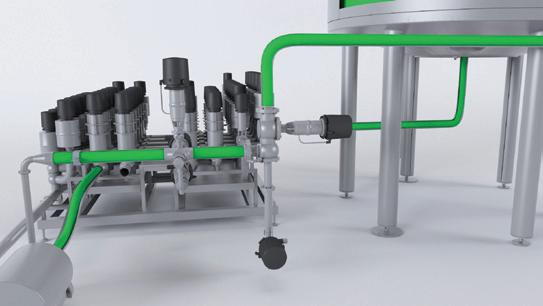
Sifter for alternative foods
The GEA Scan-Vibro Sifter type SRW helps to meet the growing demand for vegan and alternative foods. It is designed specifically for dewatering ingredients such as spent grain or yeast from breweries, tea leaves or coffee grains from beverage plants and even insect larvae, a source of valuable proteins, fats and carbohydrates for conventional as well as novel food applications. The sifter can be placed at the start of a line to remove contamination and provide a consistent feed, centrally to remove unwanted material or to recycle product or immediately before packing for a high-quality product.
It has a V-shaped seal between the sifter mesh and the sifter body has been integrated into the sifter to prevent product losses and contamination. The sifter’s inlet has been redesigned for better distribution of product across the whole surface of the mesh. This improves the separation process to enhance product recovery and further reduce the moisture content at the solid’s outlet.
The product is available with the company’s ViwateQ treatment on all surfaces, making it difficult for bacteria to adhere, so hygiene is improved and cleaning is simpler and faster. A cleaning-in-place system is included. A pneumatic screen tensioner improves screen service life and allows screens to be changed without tools.
The sifter can handle a wide range of products, is efficient with low power consumption, is capable of 24/7 operation with long service intervals and can comply with USDA 3-A, EHEDG and ATEX guidelines.
GEA Group
www.geagroup.com.au


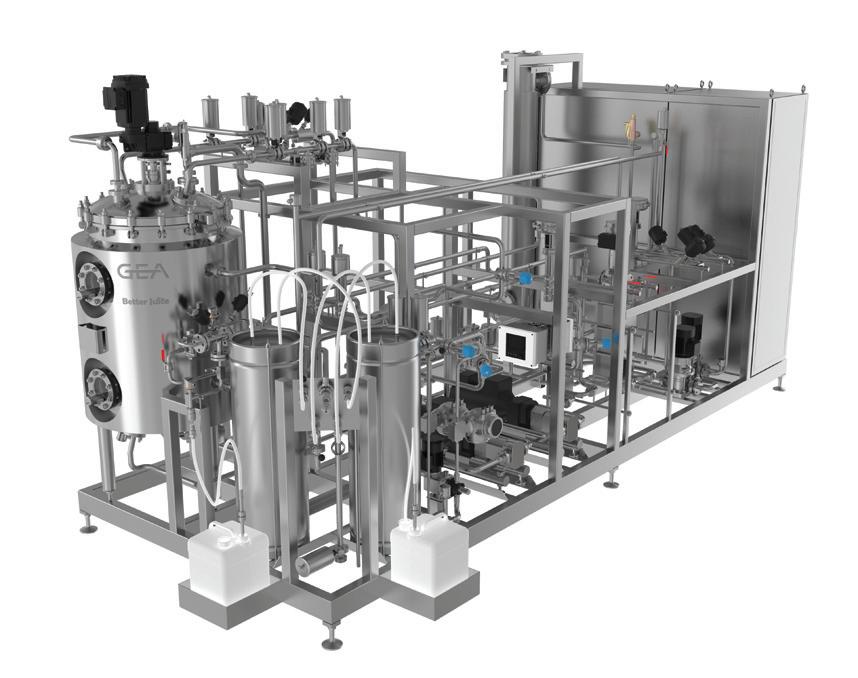
Test plant for sugar reduction in juices
GEA is working with Israeli start-up Better Juice to help manufacturers reduce the sugar content of their beverages. It is doing so by installing new equipment — the GEA Better Juice Sugar Converter Skid — at its Ahaus Test Center that will conduct product tests. The two companies inked a partnership deal in 2021.
The equipment uses an enzymatic process that can help to remove up to 80% of fruit juices, concentrates and mixtures. In a bioreactor, the sugars in these products are converted to prebiotic, non-digestible molecules that help intestinal flora.
“We can now collaborate with our customers at the Test Center to strike the ideal balance between a sweet note and reduced sugar content,” said Gali Yarom, co-founder and joint CEO of Better Juice.
Companies will be able to receive support and guidance from GEA’s specialist engineers and Better Juice’s microbiologists, and the facility will provide analytical lab services.
“It’s often necessary to initially demystify innovative solutions like the Better Juice process. That’s why it’s all the more important to make the case for the technology with manufacturers in person,” said Sascha Wesely, who leads the Non-Alcoholic Beverages business at GEA.
“The Ahaus trials help us optimise process efficiency right from the outset. By running scalable tests under real-life conditions, we significantly cut the time to market.” GEA Group www.geagroup.com.au
Image credit: GEA
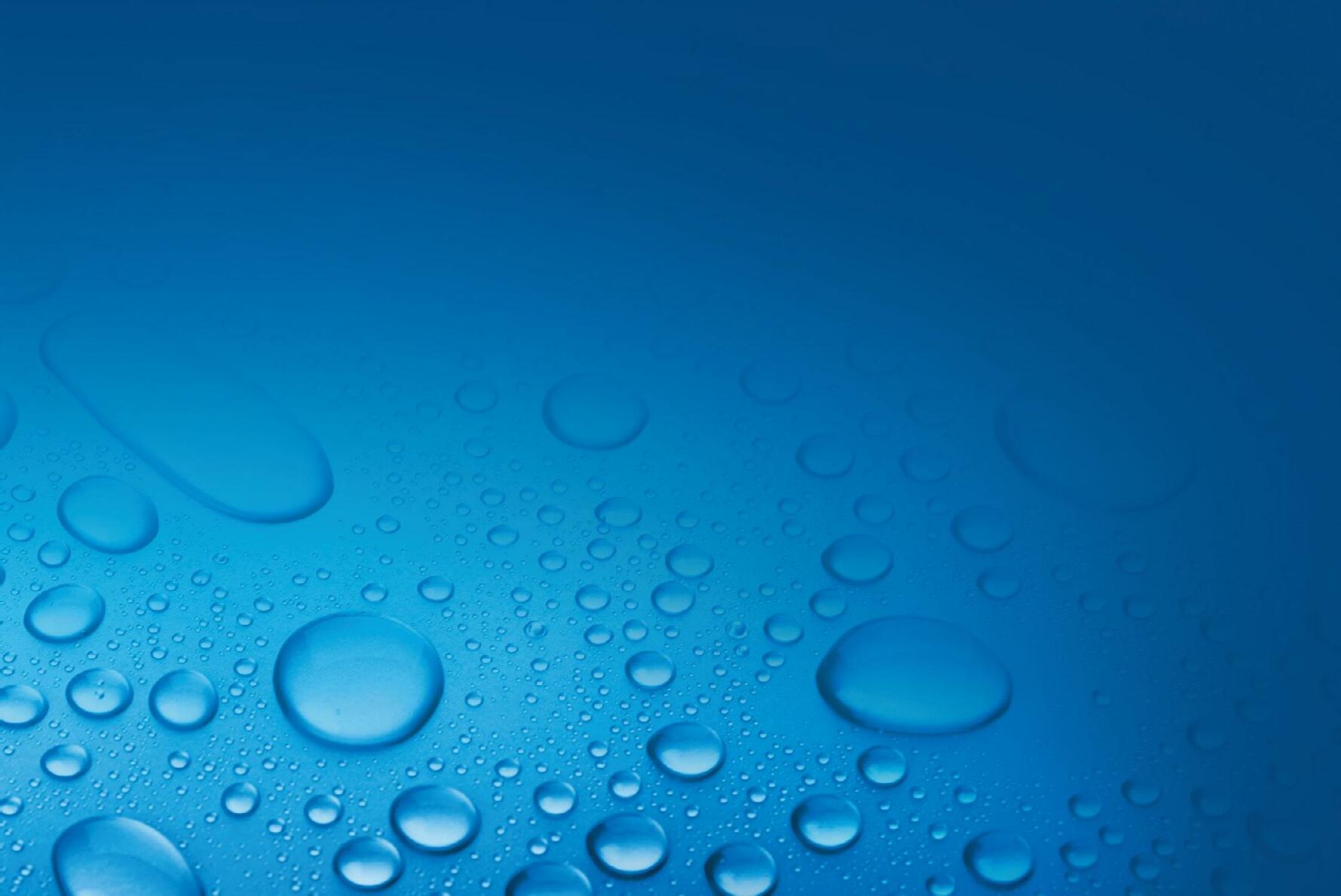
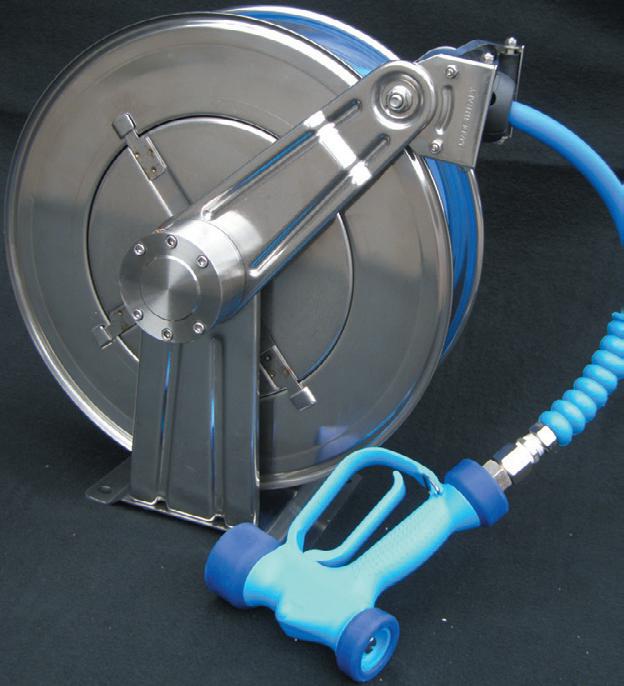
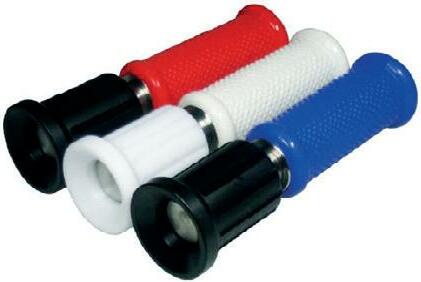
Bringing a can-do attitude to brewery
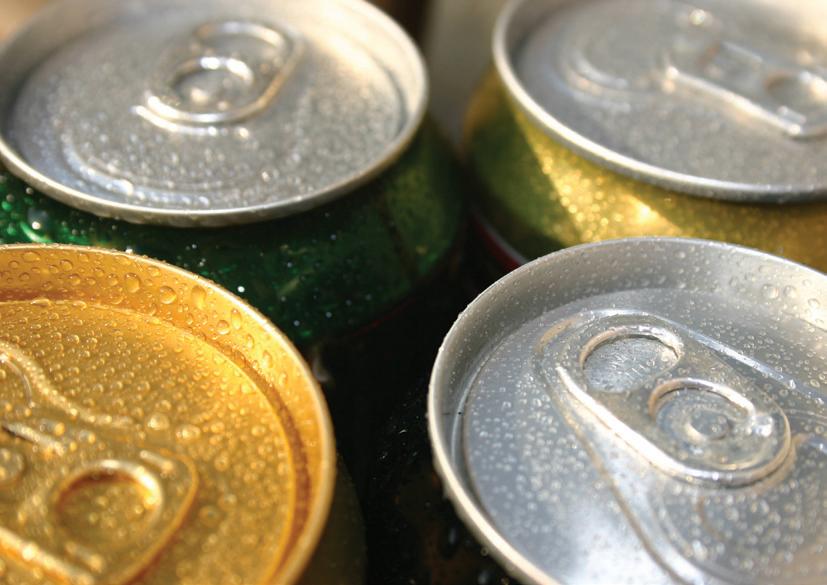
CCU Argentina, the Argentinian branch of the Chilean company Compañía Cervecerías Unidas, has increased its market share by using aluminium cans as a method of serving its beers, with the filling machinery for this process being upgraded by KHS.
When the relationship between the two companies began in 2016, glass bottles were the normal way of consuming beer, but CCU Argentina wanted to move to aluminium cans as its method of providing beer thanks to the logistical advantages of such a change. It equipped its brewery, based in the city of Luján, with new filling and packaging machinery and quickly introduced a trio of cans that proved popular in the local market.
A filler machine was installed in three months, which allowed CCU to fill aluminium cans starting in the 355 mL size and progressing to the larger 473 mL size in 2017 and then the a large 710 mL can in 2018. The latter size proved so popular that it went from being produced two days a month to four days a week.
In 2020 CCU again wanted to expand its production capacity by using machinery from KHS. A similar set-up to that of the prior expansion was utilised: KHS installed an Innofill Can DVD filler with a Ferrum seamer and an Innopas SX tunnel pasteuriser to keep product safety high, with Innopack Kister SP and PSP shrink packers for the packing process.
The new line has a capacity of 72,000 cans an hour and now, after its installation, CCU Argentina is processing around 200,000 cans of beer hourly. This has resulted in the brewery increasing its market share to 33%.
“The teamwork between our two companies was like nothing else I’ve ever experienced in any other project. Before the pandemic our KHS colleagues were a fixed feature of our soccer matches every Wednesday evening and were of course invited to the barbecue afterwards. This was real camaraderie,” said CCU Argentina’s Héctor Mungo. KHS Pacific Pty Ltd www.khs.com
iStockphoto.com/rzdeb











